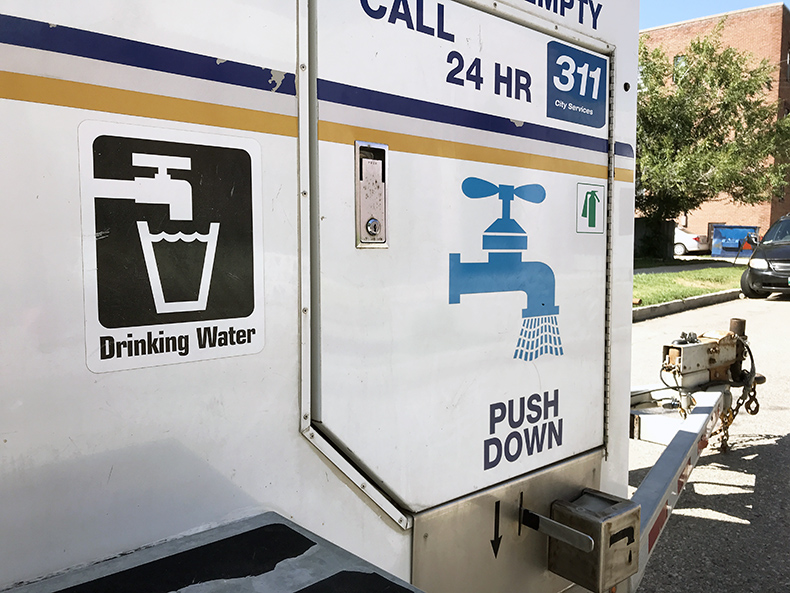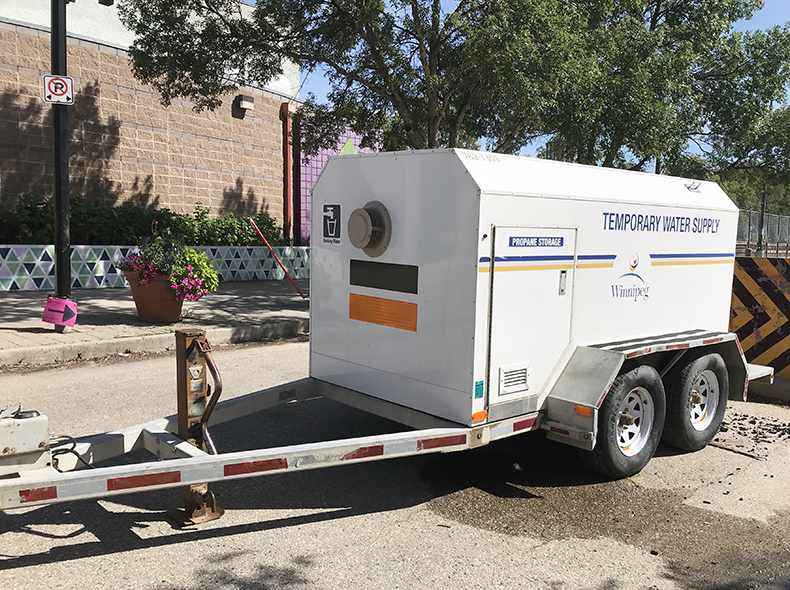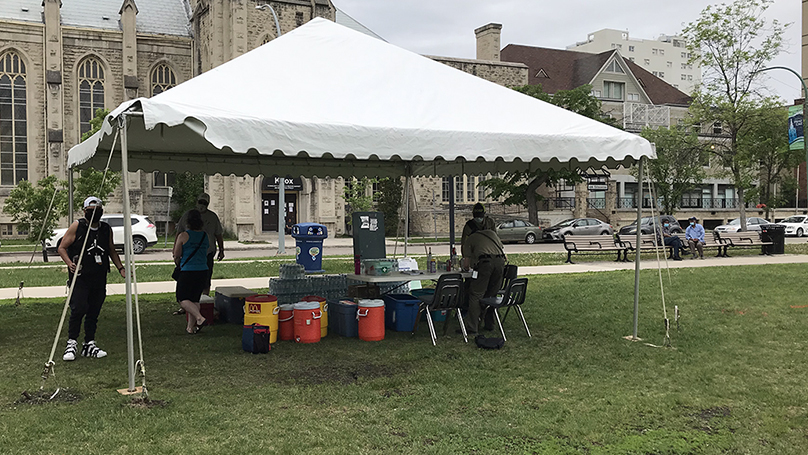
This summer has been very warm and we’ve been working to ensure residents can cope with the high temperatures and extreme heat.
“With the impacts of climate change, there have been more heat events this year and it is anticipated that trend will continue,” said Lisa Gilmour, our Emergency Management Coordinator.
This year, we placed four water tanks in key locations around Winnipeg for people to access cold drinking water. A combined 1,050 gallons of water were used on average each day this summer from the locations. For reference, each tank has a capacity of 250 gallons.

We also handed out nearly 24,000 bottles of water through our libraries, the heat relief tent in Central Park, City Hall, and nine community centres that opened as heat relief spaces. We used 1,162 bags of ice to keep the bottles cold at the heat relief tent.
The tent was operated for 25 days in Central Park through the summer in partnership with Downtown Community Safety Partnership and other community organizations.

“These partnerships are invaluable as the organizations have established relationships with community members and they were able to ensure people who needed relief from the heat knew about the tent and felt comfortable accessing the services there,” said Gilmour.
Several volunteer-run community centres also opened up their facilities during the heat to provide additional space for people to cool down.
Gilmour said COVID-19 has certainly created extra complexity around our heat response, with the importance of physical distancing, sanitizing, and following previous gathering size limits.
“We had to be flexible, adaptable, and innovative in our heat response because of the pandemic,” she said.
However, even when COVID-19 restrictions are no longer in place, the reality of our changing climate will require advancement in heat responses continue in future years. Winnipeg’s Climate Action Plan acknowledges the risks to human health related to heat events, air quality, and food security will increase without climate change mitigation.
If you want to learn more about how to be prepared during hot weather and other risks, our Office of Emergency Management is offering several Ready Winnipeg courses this September you can register for.
